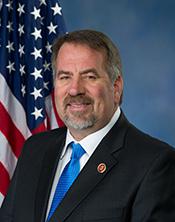0
Holding Countries Accountable for Negligent Chemical and Biological Programs Act
6/24/2024, 5:48 PM
Summary of Bill HR 1288
The key provisions of the bill include requiring the President to identify and impose sanctions on countries that are found to be engaging in negligent or reckless behavior related to chemical and biological weapons programs. These sanctions may include economic penalties, restrictions on trade, and other measures designed to deter countries from pursuing these programs.
Additionally, the bill calls for increased cooperation and information sharing between the United States and its allies to better monitor and address the threat posed by chemical and biological weapons. This includes sharing intelligence, conducting joint investigations, and coordinating efforts to prevent the spread of these weapons. Overall, the Holding Countries Accountable for Negligent Chemical and Biological Programs Act is aimed at strengthening the United States' ability to address the threat posed by countries that engage in irresponsible behavior related to chemical and biological weapons. By imposing sanctions and increasing cooperation with allies, the bill seeks to prevent the proliferation of these dangerous weapons and protect national security.
Congressional Summary of HR 1288
Holding Countries Accountable for Negligent Chemical and Biological Programs Act
This bill authorizes initial, intermediate, and final sanctions against countries that act grossly negligent (i.e., knew or should have known that an act or acts would harm another foreign state) with respect to a chemical or biological weapons program.
If the President determines that a country acted with gross negligence, the President must impose the initial sanctions (e.g., suspending scientific cooperative programs and restricting U.S. government contracting with entities operating in chemical or biological sectors of a sanctioned country) within 30 days.
Within 120 days of making the determination of gross negligence, the President must determine whether the country has taken adequate steps to redress its sanctionable conduct. If the country has not taken adequate steps, the President must impose intermediate sanctions (e.g., terminating most foreign aid and prohibiting arms transactions).
Within 210 days of making the determination of gross negligence, the President must again determine whether the country has taken adequate steps to redress its sanctionable conduct. If the country has not taken adequate steps, the President must impose final sanctions (e.g., prohibiting certain transactions in foreign exchange or transfers of credit or payment).
The sanctions may be removed 12 months after the initial sanctions were imposed if the President certifies a country adequately redressed the sanctionable conduct. The bill also authorizes waivers of the sanctions, subject to certain restrictions.
Furthermore, the President must determine and report to Congress about whether China meets the criteria for gross negligence with respect to its chemical or biological weapons program.



